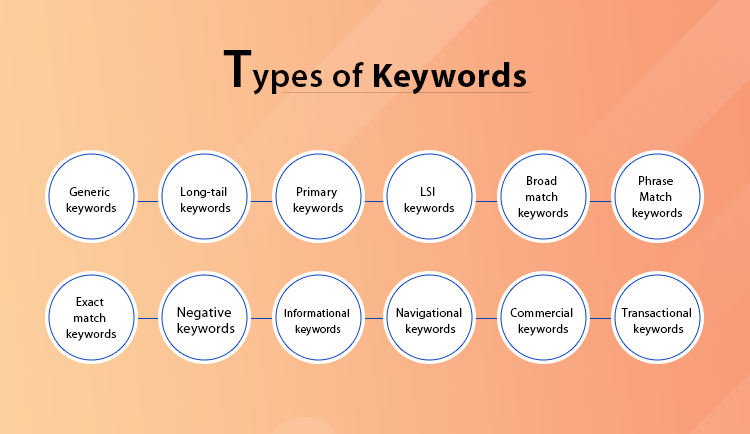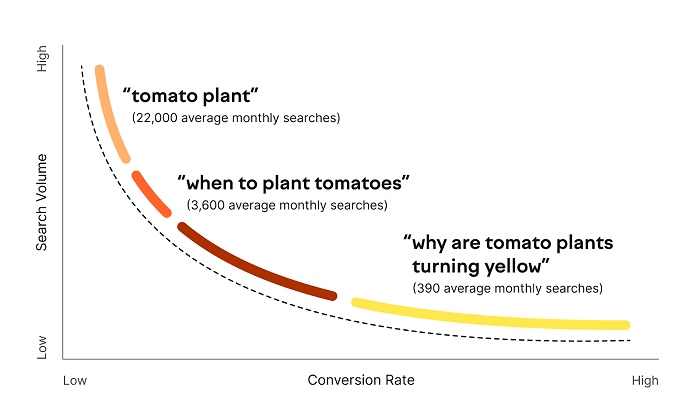- Enquiry For Sales: +91 7428094567
Enquiry For Jobs : +91 9116139991 - Request for quote
Blog

Keyword research is an integral component of any marketing plan in the healthcare industry. By selecting appropriate healthcare keywords for your website, you can boost its search engine rankings and attract more patients.
Healthcare industry keyword research doesn’t have to be a daunting task, and it can be the best way to improve search engine ranking. Get these 9 proven SEO keyword research tips for the healthcare industry that can boost organic leads by 5x.

Today’s healthcare industry is highly competitive, and search engine optimization (SEO) plays a pivotal role in drawing patients to your practice website. A strategic healthcare industry keywords plan should be included in every piece of content you create for your healthcare marketing efforts.
The initial step in developing a successful keyword strategy is researching the types of words that will benefit your medical business. Tools like Google AdWords, SEMrush, and Moz can help identify long-tail and short-tail phrases as well as their average monthly searches and level of competition.
Long-tail healthcare keywords are words or phrases that convey a specific need, desire, or interest that patients might have when searching for healthcare services. For instance, someone seeking dental implants might type in “dental implant material” or “dental implants near me.”
These keywords are essential to your healthcare business, as they indicate a potential patient is actively searching for an answer to their problem. Optimizing your site for these terms can also boost your ranking in search results.
Short-tail healthcare keywords, however, refer to shorter phrases or words with more generic content such as “cataract surgery.” While these may generate more monthly searches than longtail keywords, their intent doesn’t always match up; that is, they won’t necessarily convert visitors into patients.
In addition to long-tail and short-tail healthcare industry keywords, healthcare marketers should search for “solution-aware” keywords – those that describe a particular service or product you offer. For instance, if your service cures male pattern baldness in the Delhi & NCR area, use these terms on your service page.
Combining long-tail and short-tail healthcare industry keywords will enable your medical practice to rank higher on search engines, attract more prospective clients, and ultimately boost its ROI. You can do this by targeting these words on your site and creating content based on them.
The right keywords can make all the difference for a medical practice, from one with only a few employees to one that employs hundreds of professionals. Likewise, your healthcare content must be tailored specifically to your target audience’s needs and desires. Use Google SEO tips and tricks to your advantage.

Identifying and targeting the appropriate healthcare audience is a crucial element of any strategy for healthcare industry keywords. Not only does this save time and money, but it can also produce better results that increase your return on investment.
Targeting is essential, as each patient or consumer has individual needs and expectations. They may be searching for preventive health services or urgent assistance with a medical condition.
Focusing on a smaller team can make it simpler to clarify your brand’s vision and direction. Furthermore, having everyone on board makes for a smoother operation overall.
Your target market can be defined by behavioral characteristics, professional specialization, experience, and psychographics. By using these traits to craft an ideal customer persona for each prospect, you will be able to more effectively target them with tailored messages that resonate with them.
Analyzing your competitors is a great way to gauge where you stand in the market. It allows you to focus on areas where you have an edge, as well as identify new growth prospects for your healthcare business.
Conducting a competitive healthcare keyword analysis begins with compiling a list of your rivals. This could take just some searching on Google or it could involve looking through other websites to uncover some more names.
When creating your list, be sure to include the name of each company and what their product or service is. This will give you a general idea of their market share as well as which companies could potentially compete for the top position.
Once you have a list of competitors, investigate their marketing tactics and how they drive traffic to their websites. This may include their social media strategy as well as how they use search engine optimization tips to rank for long-tail healthcare industry keywords.

Keyword research is an integral element of successful search engine optimization (SEO). It allows medical practices to communicate directly with their target audience’s needs.
Identification of the optimal long-tail healthcare keywords for your healthcare practice will enable you to capitalize on your SEO strengths and establish yourself as a leader in your niche. Furthermore, targeting niche markets and users who are likely to convert into paying patients will give your practice more revenue potential.
Discovering potential long-tail keywords for your on-page SEO is possible using several strategies. One of the most efficient is Google’s autocomplete feature, which suggests relevant long-tail words as you type in a search query.
Selecting the ideal keyword combination is essential for any successful digital marketing strategy, and healthcare marketing is no exception. Utilizing relevant words helps your healthcare website rank better on search engines, ultimately increasing the return on investment from all SEO activities undertaken.
Healthcare marketers must not only select the correct healthcare industry keywords, but they must also take into account which type of content will work best for each one. This includes service line pages, blog posts, location pages, and provider listing content.
Selecting the most efficient healthcare keywords can seem daunting, but it can be done. A formal, organized, data-driven strategy will make all the difference. A successful keyword strategy should be tailored to fit your organizational objectives, target audience, and competitors – which means conducting thorough and relevant research.
It’s an investment that will reap rewards in the future. Plus, having the correct combination of words and Google SEO tips may help you stand out from competitors even further.
When researching healthcare industry keywords, the search volume of a particular term should be taken into account. This number varies based on the healthcare industry and how many competitors exist within that niche.
A low search volume can be beneficial, as it means there is less competition and thus increased potential success with the keyword. However, it’s essential to remember that a low search volume may also indicate that people aren’t using the term.
Thankfully, there are several tools you can use to detect low-search volume keywords. These include Google Trends, AlsoAsked, as well as online communities and forums.
Another way to identify low search volume healthcare keywords is by scanning third-party review sites like Quora. These platforms often display questions people are asking about your brand or product, which may have lower search volume than traditional keywords but still serve as effective ways for targeting your website’s audience.
Search volume is an essential metric in healthcare keyword research as it indicates how much traffic your website receives. Furthermore, search volume indicates how competitive the market for a particular keyword might be.
The higher the search volume, the more work you’ll likely need to put in to rank for that keyword or keywords. This is because big brands typically take up the top spots on a search query’s results page, so you’ll need to put extra effort into ranking your words accordingly.
You can gain a better understanding of the search volume for your targeted healthcare industry keywords by running them through tools such as SEOMoz, SEMRush, Google Keyword Tool, Ahrefs, or Wordstream’s free keyword research tool. Doing this gives an accurate assessment of how competitive the market is for these terms and helps you uncover more pertinent alternatives.
Targeting healthcare keywords with low competition offers several advantages, such as faster ranking, cheaper costs, and higher conversion rates. Furthermore, these words help build your Quality Score ratings on Google Ads which can be immensely beneficial to your business.
When hunting for low-competition healthcare industry keywords, one of the first steps you should take is assessing their search volume. Utilizing keyword research tools like Google Instant can be an excellent way to uncover keywords that are trending within your industry and have high search volumes.
Once you’ve narrowed down your search terms, look for long-tail keywords specific to your medical practice. Crafting content around these keyphrases will boost your website’s visibility in search results and attract more prospective patients to your practice.
When selecting healthcare keywords, consider their search volume, difficulty level, and backlinks. Additionally, be sure to determine if there are any competing websites ranking for similar terms.

If you’re running a healthcare website, chances are your goal is to convert visitors into customers. Utilizing healthcare industry keywords with high conversion rates should be an integral part of your best SEO tips, and it can be the best way to improve search engine ranking.
One of the most efficient methods for finding healthcare keywords that convert is by analyzing PPC (pay-per-click) data. Doing this can help you uncover long-tail phrases with low competition and high conversion rates.
It’s wise to utilize keyword research tools to uncover questions real customers are asking. Doing this gives you a deeper insight into the intent behind their searches and allows you to answer them with content tailored specifically toward them.
CPC (cost per click) is an ideal metric to monitor since it allows advertisers to pay only when someone clicks their ad. Utilizing healthcare industry keywords with low CPC can save money while driving more conversions and traffic.
Keyword costs vary based on your industry. Healthcare-related terms tend to be more expensive due to their higher search volume and fiercer competition.
Therefore, it’s essential to check the average cost per click for every keyword you plan to use. Doing this will guarantee that you don’t end up spending more money than necessary.
Additionally, using long-tail keywords is one of the best Google SEO tips since they tend to be less competitive and therefore cheaper than their broad equivalents. Another way to reduce your CPC is by targeting keywords with a high-Quality Score. This is an algorithm developed by Google which assesses the relevance of ads and landing pages to search queries; it also determines their position on the page as well as how much you must pay per click.
Are you searching for a digital marketing agency in Delhi that can assist in finding the best healthcare industry keywords and growing your healthcare business? Reinvent Digital will enable you to reach new audiences, attract customers, and get your business noticed – we’re masters of keyword research.
We offer a range of services, such as paid ads management, social media marketing, creative design, and video production. Our team consists of experienced professionals from different disciplines, such as IT, SEO, and marketing. Together we devise and execute successful strategies that yield positive outcomes for diverse businesses including healthcare.
We have verified client reviews and an impressive track record in digital marketing for healthcare. Check our website and read case studies to gain insight into our strategies and successes with clients.
If you’re a healthcare brand looking to expand your horizons with solid on-page SEO, Reinvent Digital welcomes you with open arms. We are the maestros of healthcare SEO and have helped many brands with three digital marketing agencies in India in cities Delhi, Jaipur, and Gurgaon. Click on our Case Study section to learn more about our successes with – clients.